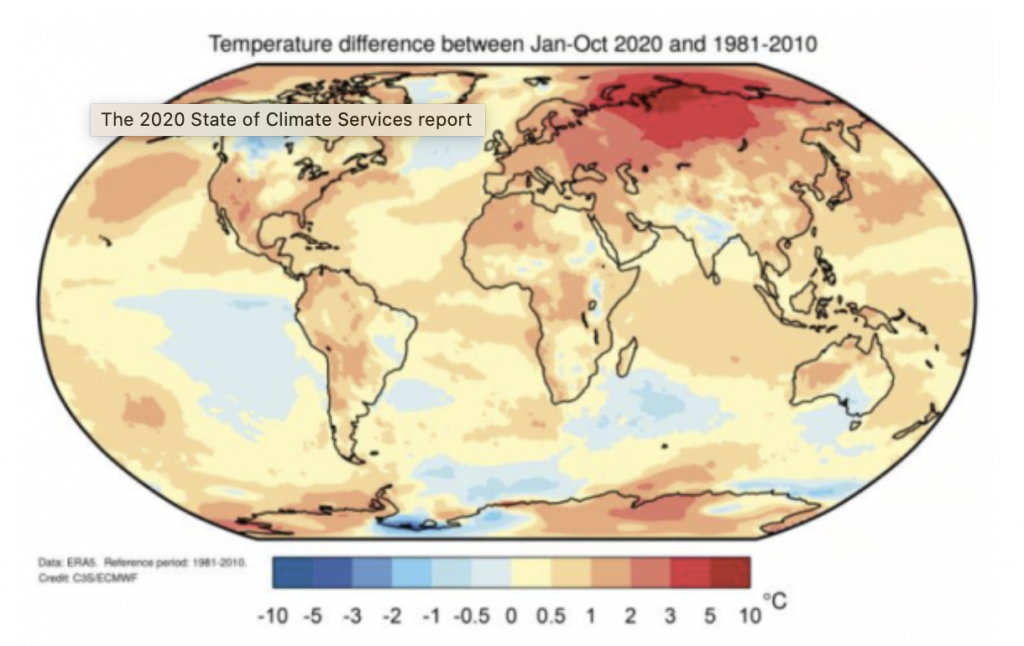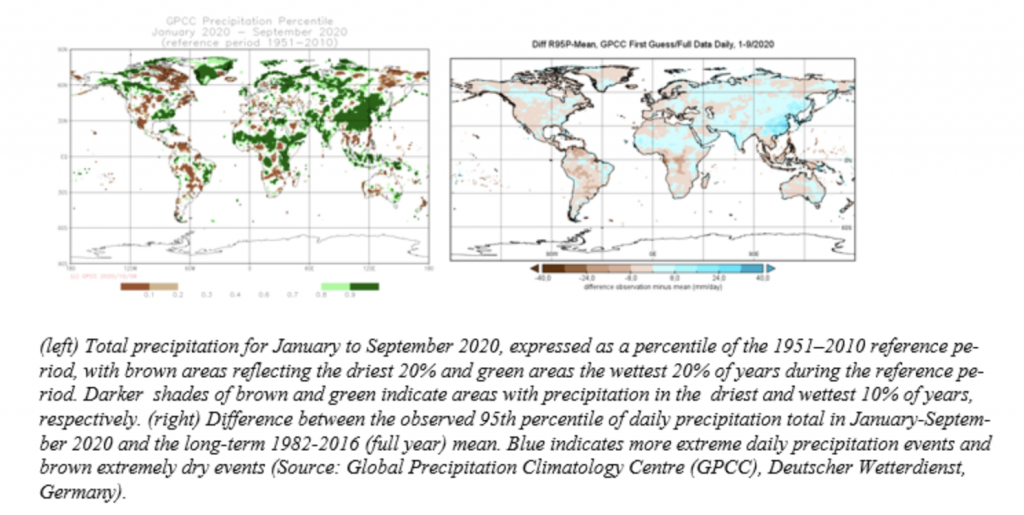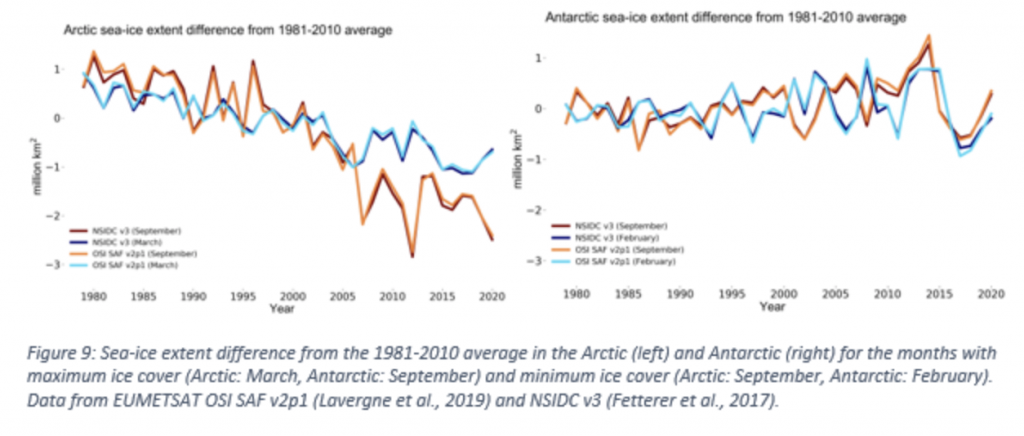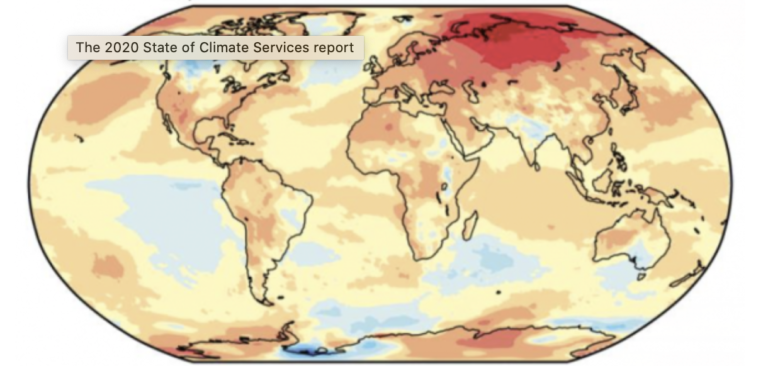The World Meteorological Organization has revealed that 2020 is on track to be one of the warmest years on record and 2011-2020 will be the warmest decade ever recorded.
According to WMO’s provisional report, State of the Global Climate in 2020, ocean heat is at record levels and more than 80% of the global ocean experienced a marine heatwave at some time in 2020, with widespread repercussions for marine ecosystems already suffering from more acidic waters due to carbon dioxide (CO2) absorption.
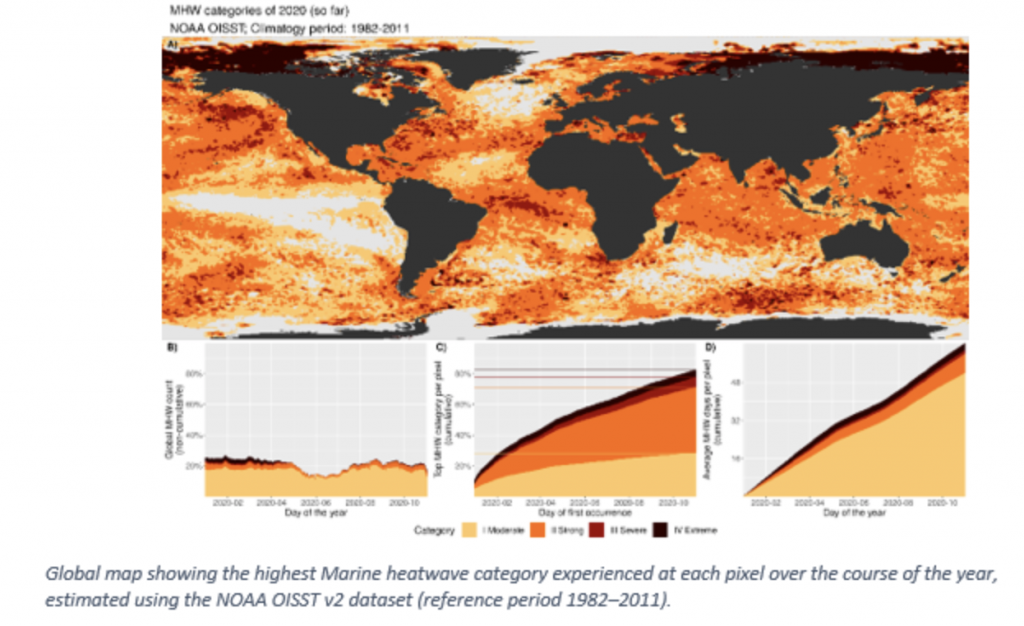
The report, which is based on contributions of dozens of international organizations and experts, shows how high-impact events including extreme heat, wildfires and floods, as well as the record-breaking Atlantic hurricane season, affected millions of people, compounding threats to human health, security and economic stability posed by the Covid-19 pandemic.
“The average global temperature in 2020 is set to be about 1.2°C above the pre-industrial (1850-1900) level,” said WMO secretary-general Prof. Petteri Taalas. “There is at least a one in five chance of it temporarily exceeding 1.5°C by 2024.”
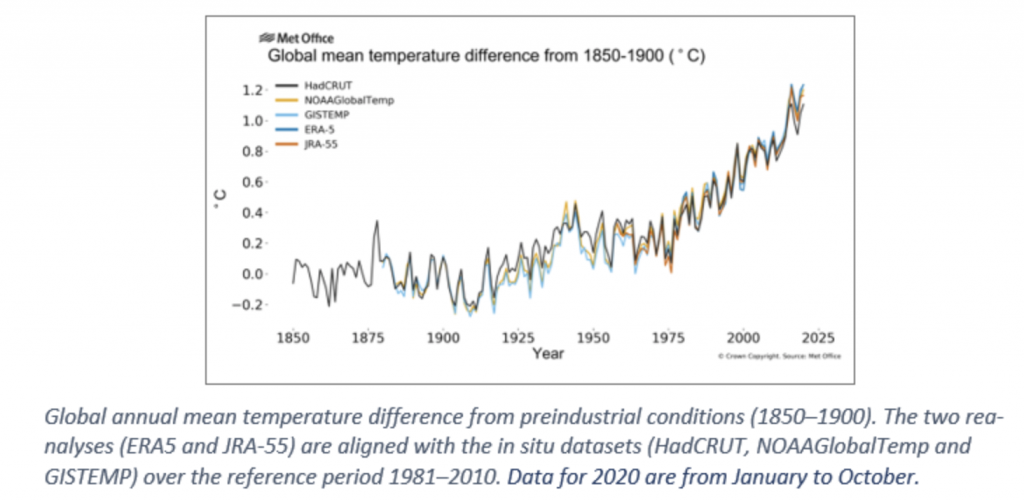
“This year is the fifth anniversary of the Paris Agreement on Climate Change,” continued Taalas. “We welcome all the recent commitments by governments to reduce greenhouse gas emissions because we are currently not on track and more efforts are needed.
“Record warm years have usually coincided with a strong El Niño event, as was the case in 2016. We are now experiencing a La Niña, which has a cooling effect on global temperatures, but has not been sufficient to put a brake on this year’s heat. Despite the current La Niña conditions, this year has already shown near record heat comparable to the previous record of 2016.
“The year 2020 has, unfortunately, been yet another extraordinary one for our climate. We saw new extreme temperatures on land, sea and especially in the Arctic. Wildfires consumed vast areas in Australia, Siberia, the US West Coast and South America, sending plumes of smoke circumnavigating the globe. We saw a record number of hurricanes in the Atlantic, including unprecedented back-to-back category 4 hurricanes in Central America in November. Flooding in parts of Africa and Southeast Asia led to massive population displacement and undermined food security for millions,” he said.
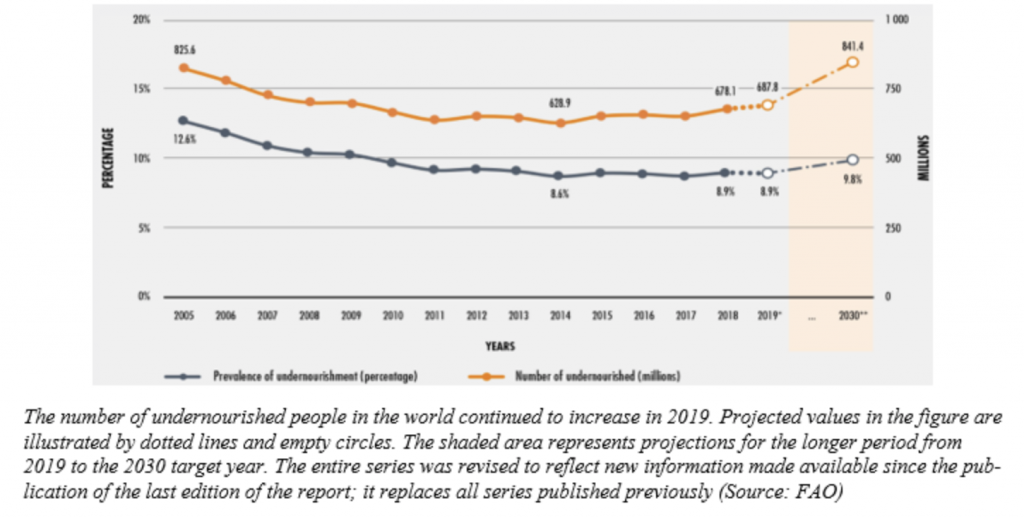
The provisional State of the Global Climate in 2020 report is based on temperature data from January to October. The final 2020 report will be published in March 2021. It incorporates information from national meteorological and hydrological services, regional and global climate centers and United Nations partners including the Food and Agriculture Organization of the United Nations (FAO), International Monetary Fund (IMF), Intergovernmental Oceanographic Commission of UNESCO (UNESCO-IOC), International Organization for Migration (IOM), the United Nations Environment Programme (UNEP), UN High Commissioner for Refugees (UNHCR) and the World Food Programme (WFP).
The WMO assessment is based on five global temperature data sets. All five of those data sets currently place 2020 as the second warmest for the year to date, following 2016 and ahead of 2019. The difference between the warmest three years is small, however, and exact rankings for each data set could change once data for the entire year is available.
The most notable warmth was observed across northern Asia, particularly the Siberian Arctic, where temperatures were more than 5°C above average. Siberian heat culminated in late June, when it reached 38.0°C at Verkhoyansk on June 20, provisionally the highest known temperature anywhere north of the Arctic Circle. This fueled the most active wildfire season in an 18-year data record, as estimated in terms of CO2 emissions released from fires.
To read more about the data from the WMO’s provisional report, State of the Global Climate 2020, click here.
